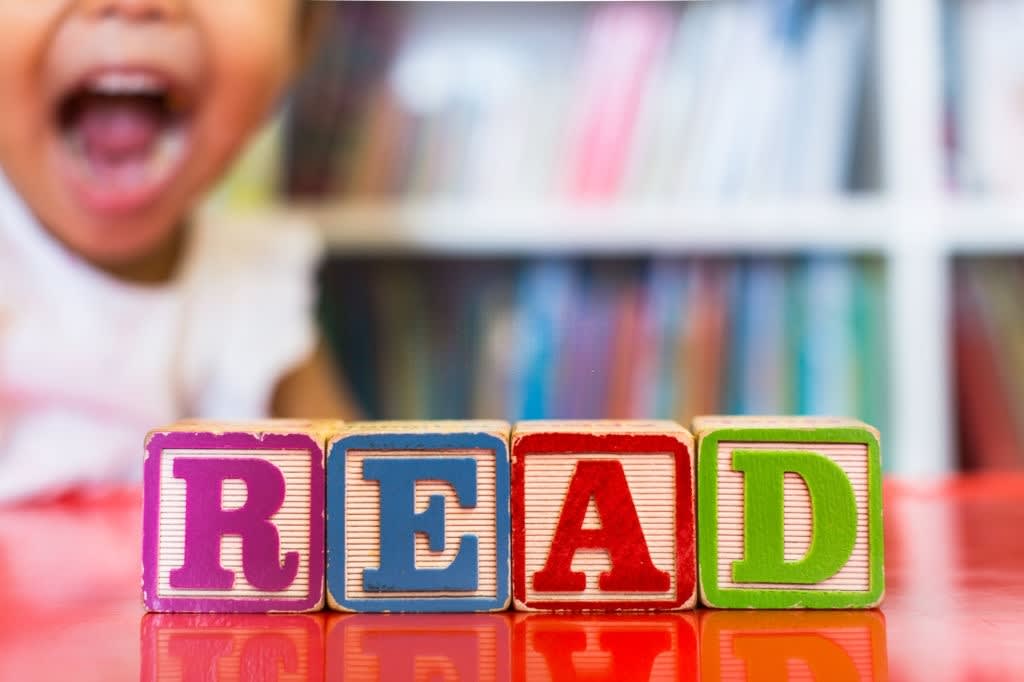Rhyming Words for Kids & How to Teach
Stages of Rhyme Learning

Rhyming Words for Kids & How to Teach
As a parent, it is important to encourage your child to learn to rhyme. The parent can make learning fun for the child by helping him to recognize rhymes. Children who are good at rhyming words will have an easier time learning to read and spell. This makes reading easier for them.
They are also better able to detect shared letter sequences, making reading easier using Jolly Reading Classes for them. The stages of rhyme learning are very similar to those of other reading skills.
This article will cover each stage of learnning .
There are several stages of recognition in rhyme learning. There are also three basic stages in rhyme learning: early, middle, and advanced. This article will cover each stage.
The first one is the most important Awareness refers to knowing when a word rhymes with another one Developing phonological awareness is critical for rhyming, which is a pre-reading skill.
It is important to note that a child’s phonological awareness may be an early symptom of dyslexia.
The second stage is recognizing rhyming words.
This skill requires phonemic awareness, which is a crucial pre-reading skill.
By increasing the amount of exposure to rhyme, students can develop their phonological
Stages of Rhyme Learning
1)Exposure:
Introducing them to nursery rhyming words is as easy as singing the nursery tune. It is a good idea to expose them to a range of rhyming music as they read them and sing them.
2) Recognition:
After listening and singing the music, the child should be able to identify the pattern of the rhyme, also known as rhyme recognition.
3) Production:
After exposure and recognition of rhymes, your child will be able to produce rhyme themselves. Asking questions to rhyme simple daily words such as Bat, Cab, and Ball will make them curious to explore more.
How to Teach Rhyming Words
Here are some ideas to help you teach your child rhyming words. First, make rhyme games. Children love playing these games, and you can play them anytime. Prepare a basket with a few objects in it. As the children walk around the circle, they say a rhyming word and are asked to pull out what rhymes with that word.
Another great idea is to play rhyme games. One of the most simple activities is to sort words by endings and then pull one from each family and ask your child to find the rhyme for that word. You can also make up a deck of cards and give your child a clapping game to help them remember the rhyming words. In addition, you can create worksheets and flashcards for your child to practice recognizing rhyming words.
Another way to learn rhyming words is to create a word family. You can teach kids how to recognize rhyming words with word tiles.
You can even make your rhymes by combining different word families. You can create a rhyming scavenger hunt for a more interactive activity where you let your child choose a rhyming word.
- Poetry books, reading rhymes and songs.
- Puzzles that contain rhymed words.
- Clipping cards
- Lap books
- Rhyming dictionaries
A) Rhyming words with “at”
Bat, Cat, Fat, Hat, Mat, Pat, Rat, Sat, Vat, Slat, Brat, Flat, Chat, Splat, That
B) Rhyming words with “an”
Ban, Can, Fan, Man, Pan, Ran, Tan, Van, Flan, Plan, Span, Scan
C) Rhyming Words with “ab”
Cab, Dab, Drab, Fab, Flab, Grab, Jab, Nab, Lab, Slab, Tab, Crab
D) Rhyming Words with “ad”
Add, Bad, Clad, Dad, Fad, Had, Lad, Mad, Pad, Rad, Sad
E) Rhyming Words with “all”
Ball, Call, Fall, Hall, Mall, Shawl, Tall, Wall, Thrall, Gall
F) Rhyming Words with “ag”
Bag, Flag, Drag, Gag, Hag, Nag, Rag, Sag, Tag, Wag
G) Rhyming Words with “ip”
Ship, Chip, Clip, Dip, Drip, Flip, Grip, Hip, Kip, Lip, Nip, Lip, Rip, Sip, Slip, Skip, Snip, Tip, Trip, Zip
H) Rhyming Words with “ap”
App, Cap, Clap, Flap, Gap, Lap, Map, Nap, Rap, Scrap, Slap, Snap, Strap, Snap, Tap, Trap
I) Rhyming Words with “id”
Bid, Did, Hid, Kid, Lid, Mid, Rid, Sid, Grid, Slid, Skid
J) Rhyming Words with “op”
Bop, Cop, Crop, Clop, Drop, Flop, Hop, Mop, Plop, Prop, Shop, Stop, Swap, Top
K) Rhyming Words with “am”
Clam, Cram, Dam, Gram, Ham, Jam, Lamb, Ram, Slam, Spam, Tram
L) Rhyming Words with “ig”
Big, Dig, Fig, Gig, Pig, Rig, Twig, Swig, Wig, Brig
M) Rhyming Words with “ar”
Are, Bar, Car, Far, Jar, Scar, Star, Tar
N) Rhyming Words with “aw”
Awe, Caw, Claw, Draw, Flaw, Paw, Raw, Saw, Straw, Thaw
O) Rhyming Words with “ay”
Bay, Clay, Day, Gray, Hay, Jay, Lay, May, Pay, Play, Pray, Say, Stay, Spray, Way
P) Rhyming words with “ell”
Bell, Cell, Dell, Fell, Gel, Sell, Shell, Smell, Well, Yell
Q) Rhyming words with “en”
Den, Men, Pen, Ten, Then, When, Wren, Zen, Ben, Ken
R) Rhyming words with “et”
Bet, Get, Jet, Let, Met, Net, Pet, Set, Wet, Yet
S) Rhyming words with “ew”
Blue, Blew, Brew, Chew, Clue, Crew, Cue, Dew, Drew, Ewe, Flew, View, You
T) Rhyming Words with “in”
Bin, Chin, Din, Fin, Grin, Inn, Pin, Shin, Skin, Spin, Twin, Thin, Tin, Win
U) Rhyming Words with “it”
Bit, Fit, Hit, Kit, Knit, Lit, Mit, Nit, Pit, Sit, Skit, Slit, Spit
V) Rhyming Words with “od”
Cod, Bod, Odd, Nod, Plod, Prod, Rod, Squad, Trod, Pod
W) Rhyming words with “og”
Bog, Blog, Cog, Clog, Dog, Fog, Frog, Hog, Jog, Log
X) Rhyming words with “op”
Top, Chop, Cop, Crop, Drop, Flop, Hop, Mop, Pop, Shop, Stop
Y) Rhyming words with “ot”
Blot, Cot, Clot, Dot, Got, Hot, Knot, Not, Plot, Pot, Rot, Shot, Spot
Z) Rhyming words with “ow”
Bow, Brow, Cow, How, Now, Pow, Sow, Row, Vow, Wow
Conclusion:
Learning nursery rhymes is more than just learning the words. It helps children with language development. The successful implication of these rhyme words in front of the children can make them smart in spoken language . It is considered one of the vital communication skills, making them language smart using Jolly Reading (Jolly Phonics programs).
Teaching your kids to rhyme words will solidify their literacy foundation and give them an advantage of developed language skills. Building a rhyming skill little by little through nursery rhymes, reading rhyming stories, everyday object rhyming, and other activities such as lap books and word games can help.
About the Creator
Megha Vyas
Megha Vyas in Jolly Reading is an Education Consultant who has Certification for Jolly Phonics & Jolly Grammar from JOLLY PHONICS CPD College UK.
She was working for Air India as an Air Hostess.






Comments
There are no comments for this story
Be the first to respond and start the conversation.